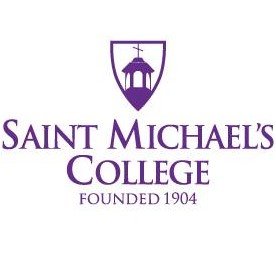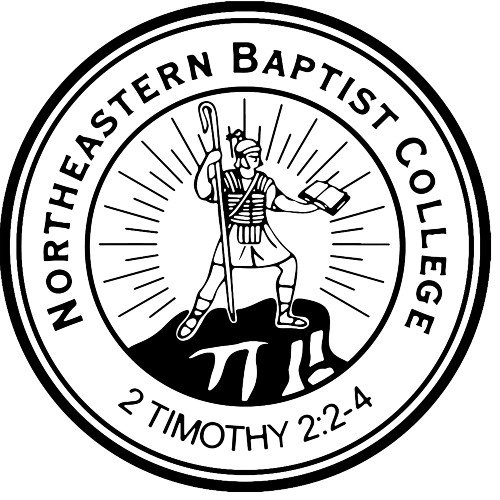
Theological Seminaries in Vermont
Pursue your calling at Vermont’s premier theological seminaries
Best Theological Seminaries in Vermont
Vermont’s theological seminaries offer an enriching environment for students seeking to grow both spiritually and academically.
These institutions provide a wide range of programs in theology, biblical studies, and pastoral care, all designed to prepare future leaders for ministry roles.
With a focus on practical ministry experience and spiritual formation, Vermont’s seminaries equip students with the tools and knowledge needed to serve their communities with faith and wisdom.
Top Theological Seminaries in Vermont
Here’s a list of some of the top theological seminaries in Vermont:

St. Michael’s College
Location: Colchester, VT
Denomination: Roman Catholic
Notable for: St. Michael’s College offers programs in Religious Studies that cater to students interested in exploring theology, ethics, and Christian ministry. While not a traditional seminary, it provides a robust academic foundation in Christian theology and ministry. Its Master of Arts in Theology and undergraduate programs are valuable for those pursuing ministry or further theological education within the Roman Catholic tradition.

Northeastern Baptist College (NEBC)
Location: Bennington, VT
Denomination: Baptist (Southern Baptist Convention)
Notable for: Northeastern Baptist College (NEBC), founded in 2013, focuses on equipping leaders for pastoral roles, church planting, and ministry in the Northeastern U.S. Rooted in Baptist tradition, NEBC offers degree programs such as Biblical Studies, Music Ministry, and Business Administration, combining rigorous academics with practical ministry training.
Why Choose a Seminary in Vermont?
Here are several compelling reasons to consider:

Vermont’s Commitment to Education
Vermont has a long-standing commitment to high-quality education, and its seminaries are no exception.
Connection to Historical Religious Roots
While Vermont is known for its progressive tendencies, it also has deep historical connections to religious traditions, especially Congregationalism and other Protestant denominations.
Natural Beauty and Peaceful Environment
Vermont is known for its picturesque landscapes, with rolling hills, lush forests, and serene lakes.
(FAQs) About Theological Seminary in Vermont
Here are some Frequently Asked Questions (FAQs) about attending a theological seminary in Vermont:
Seminaries in Vermont typically offer a variety of programs, including Master of Divinity (MDiv), Master of Theological Studies (MTS), Master of Arts in Religion (MAR), and Doctor of Ministry (DMin). Some seminaries also offer certificate programs in areas like pastoral ministry, chaplaincy, or spiritual direction.
Yes, some seminaries in Vermont are affiliated with particular denominations, such as the Congregationalist, Episcopal, or Unitarian Universalist traditions. However, many seminaries are also ecumenical or non-denominational, welcoming students from diverse faith backgrounds and traditions.
Many seminaries in Vermont offer flexible part-time and online options to accommodate students with work, family, or other commitments. Hybrid models, which combine in-person and online learning, are also common. Be sure to check the specific seminary for the format that best fits your schedule.
Tuition costs for theological education can vary widely depending on the institution and the type of program. Full-time MDiv programs typically cost between $10,000 to $30,000 per year. However, financial aid, scholarships, and work-study programs are often available to help reduce the financial burden.
Yes, most Vermont seminaries offer financial aid, including need-based scholarships, grants, and work-study programs. Some seminaries also have denominational scholarships or fellowships for students from specific religious traditions. It’s important to contact the financial aid office of the seminary you’re interested in for more details.
Admission requirements typically include a bachelor’s degree from an accredited institution, a statement of faith or purpose, letters of recommendation, and an interview. Some programs may require GRE scores or previous experience in ministry, depending on the degree level and type.
Yes, most seminaries in Vermont offer opportunities for field education or internships where students can gain practical ministry experience. This could include working in local churches, hospitals, non-profit organizations, or social service agencies. These internships are often an integral part of programs like the MDiv.
Graduates of Vermont seminaries can pursue a variety of career paths, including pastoral ministry, chaplaincy, non-profit leadership, social justice advocacy, theological education, or roles within denominational leadership. Some graduates also go on to doctoral studies or academic careers in theology and religious studies.
Yes, spiritual formation is a key component of theological education in Vermont. Seminaries often integrate spiritual direction, retreats, and personal reflection into their programs to help students grow in their faith and develop a deeper relationship with God.
Absolutely. Vermont’s natural beauty and peaceful surroundings make it an ideal setting for spiritual reflection and retreat. Many seminaries take advantage of the state’s landscapes by offering wilderness retreats, spiritual retreats, or opportunities to engage in eco-theology and nature-based spiritual practices.
Yes, many seminaries in Vermont emphasize interfaith dialogue and ecumenical engagement. Students often have the chance to engage with people from various faith traditions, enhancing their understanding of different religious perspectives and preparing them for ministry in diverse communities.
The combination of small class sizes, a strong sense of community, progressive theological thought, and the state’s focus on sustainability and social justice make Vermont seminaries distinct. The emphasis on creation care, inclusivity, and integrating faith with environmental stewardship also adds a unique dimension to theological education in Vermont.
Vermont’s culture of progressivism, social responsibility, and commitment to sustainability significantly influences the theological education offered in the state. Seminaries often emphasize issues like social justice, ecological responsibility, and inclusive ministry, making it a great place for students who are passionate about these topics.
Campus life in a Vermont seminary is typically close-knit and community-oriented. Students often live in small, rural settings, participate in chapel services, discussion groups, and communal meals, fostering a strong sense of belonging. Outdoor recreation and engagement with nature are also commonly encouraged.
Yes, many Vermont seminaries welcome international students and provide support for those coming from abroad, including assistance with visas and adjusting to life in the U.S. Some seminaries offer specific scholarships or programs geared toward international students.
